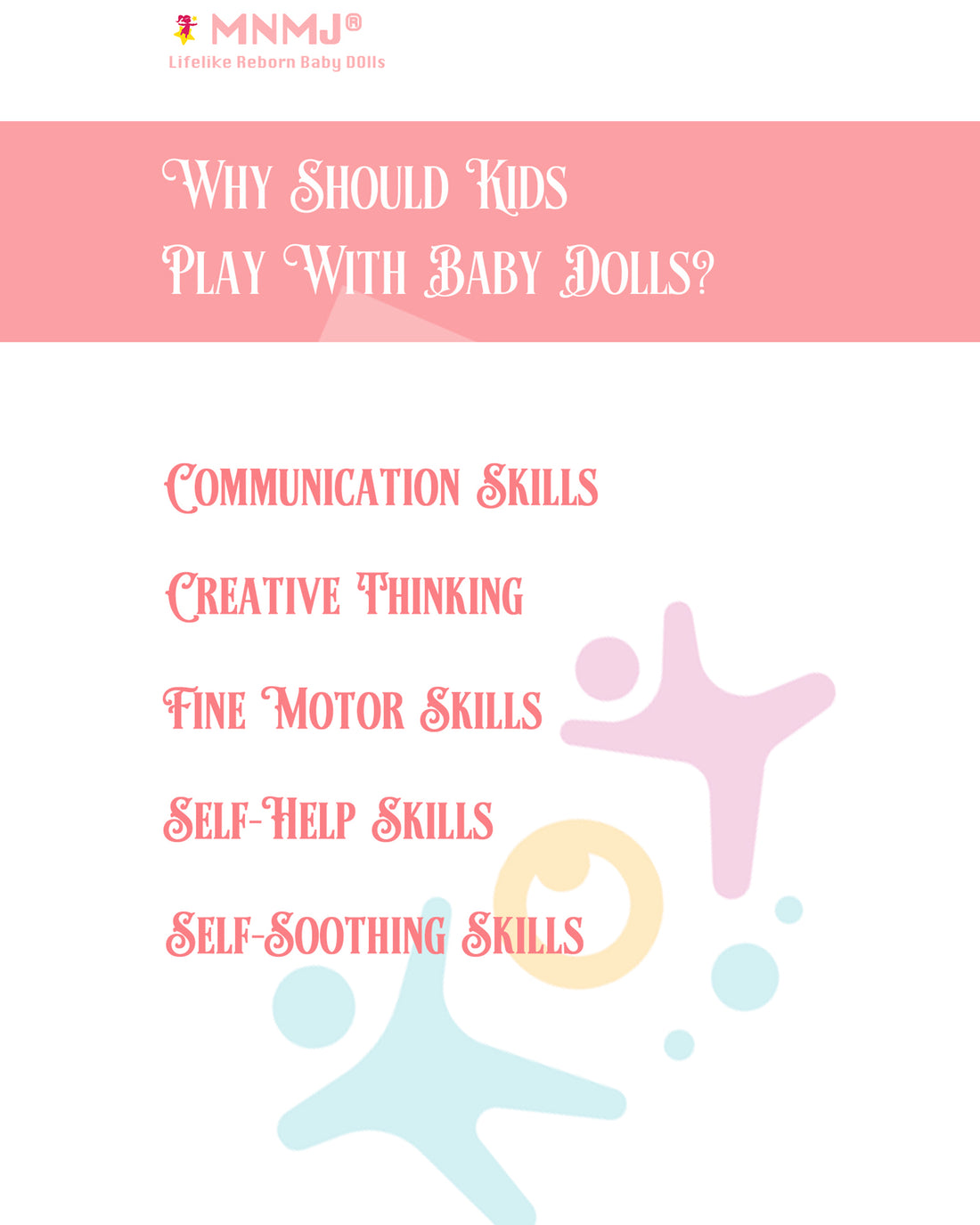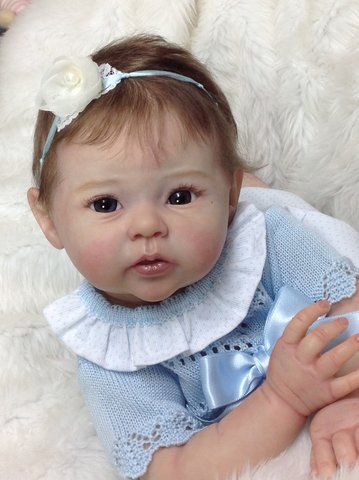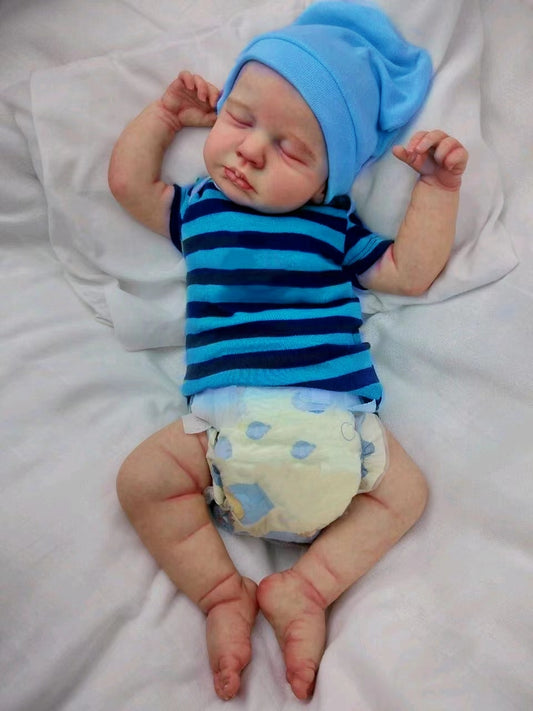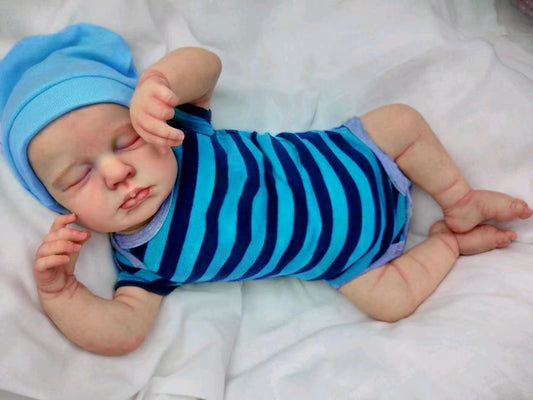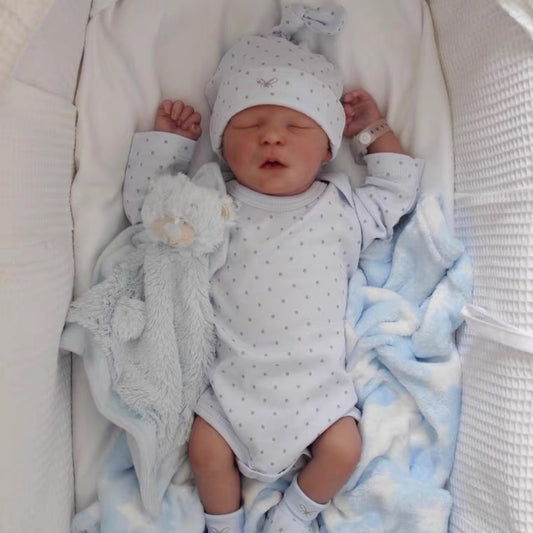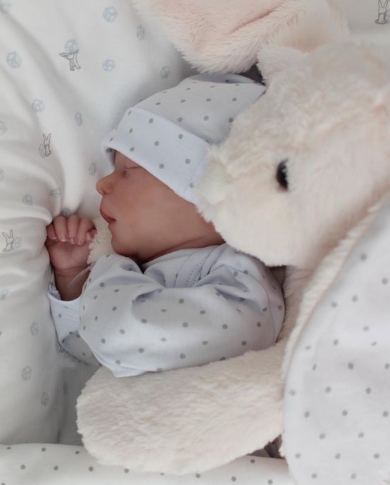While dolls aren’t necessarily part of any formal curriculum, experts agree they offer a host of developmental benefits for young children.
“I bought baby dolls for both of my sons and daughter,” Dr. Tamis-LeMonda says. “It gives children the opportunity to be empathic, emotional, and show caring and attention toward others.”
Along with social-emotional benefits, playing with dolls can also promote skills that help prepare a child for preschool. Learn more about what children gain from this sweet, fun form of imaginative play.
Communication Skills
While dolls don’t tend to be big talkers, this doesn’t stop children from conversing with them. “Children get a lot of language practice through talking to their dolls,” Dr. White says. “If they feel unsure or scared to say something, they may say it to their doll.”
Dolls can also facilitate peer-to-peer social skills. “As children approach preschool age, you’ll see a child pretending to take their baby to the doctor or school and having rich conversations with other children about these scenarios,” DeLapp notes.
Doll friends likewise provide an opportunity for children to learn words for feelings that can be unseen or covert, like hunger, sleepiness, or sadness. “Different kinds of play support different kinds of language learning,” Dr. Tamis-LeMonda explains.
Doll play can also help a child express themselves. “If a child is feeling shy, you can ask about the baby, which can be a great way to facilitate back and forth communication,” says Dr. White. Since role-playing is a form of projection, you should lend an ear should your child tell you their doll is sad or scared.
Creative Thinking
As toddlers develop, pretend play becomes a cornerstone of the baby-doll experience, opening the door for thinking outside the box. “Children can act out things that have happened to them or things that they have seen in real life or books or television shows," says Julia DeLapp, MS, director of an early childhood research center at Eastern Connecticut State University. Or they can just use their imagination to think of what a baby might do and how a caregiver might respond.”
You can serve as scaffolding to encourage higher levels of pretend play with dolls. While you don’t have to chaperone your child’s entire play session, asking them, “Is baby hungry? What are you going to feed her?” or offering a pot of dry pasta and a wooden spoon can encourage them to imagine at higher levels and extend a session of independent play, Dr. Tamis-LeMonda says.
Empathy
Common toddler traits like impatience and stubbornness demonstrate that young kids often struggle to acknowledge those around them. “Kids can have a hard time getting used to the fact that others have different thoughts and feelings,” Dr. White says.
Playing with dolls can help nurture empathy—particularly when an adult is there to guide them. For example, if your child pretends that their baby doll is crying, you might ask, “Is your baby sad?” or “What do you think would make them feel better?”
“This helps young children learn to recognize and name emotions and also to think about someone else’s perspective and someone else’s needs,” says DeLapp.
Fine Motor Skills
While blocks and puzzles can help encourage fine motor development, many children like to dress and undress dolls using buttons and zippers. These tricky movements give kids the opportunity to practice these practical skills, says DeLapp.
Self-Help Skills
When children feed their baby dolls, they practice using a cup, fork, and spoon—skills they can apply at their next real meal. (Another perk of pretend feeding: It can facilitate conversations about what your child does and doesn’t like to eat in real life.)
Doll play may also promote personal hygiene skills. Many children like to brush their dolls' hair, and Berman recalls a time when she found her child brushing her dolls' teeth (with real toothpaste, no less).
Self-Soothing Skills
When a child showers a doll or stuffed animal with affection it's not only cute, it is likely helping them cope with big emotional feelings.
After all, every hug and kiss benefits the little giver, too. “Children learn how to soothe themselves by soothing their dolls,” says Dr. White.
Why Should Kids Play With Baby Dolls?
